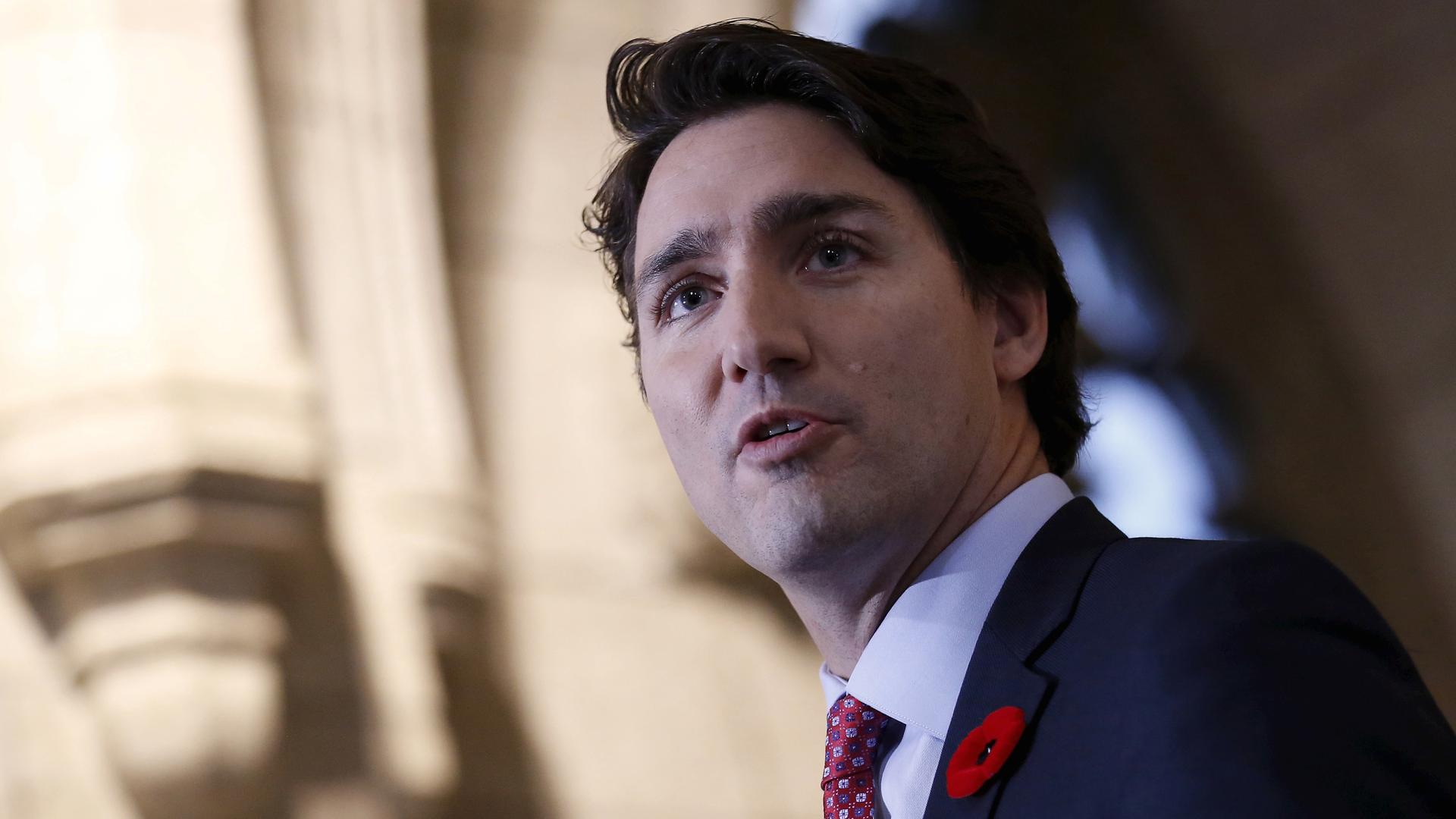In his dad’s old office, Canada’s new prime minister is making some changes
Canada's Prime Minister Justin Trudeau speaks to journalists as he arrives for a Liberal caucus meeting on Parliament Hill in Ottawa, Canada on November 5, 2015.
It was a genuinely good line.
“Because it’s 2015,” Justin Trudeau said when asked why it was important to him to form a Cabinet made up of equal numbers of men and women. Trudeau was speaking after his swearing-in ceremony on Wednesday.
The answer got a hearty round of applause. It quickly came to life as a Twitter hashtag. And it got all kinds of attention from the international news media.
But the line was not exactly spontaneous. During a strategy session with his advisors ahead of time, Trudeau discussed how he might respond to a question from reporters about why he insisted on achieving gender parity with his new cabinet.
“Do people still they can get away with the arguments that they’re making now against this?” Trudeau is shown asking in a video put out by the CBC, which had access to meeting.
Off camera, one of the prime minister’s advisers is heard suggesting, “I think just calling people’s attention to the year is all you’re going to need to say.”
After that, all Trudeau needed to do was hit the rhetorical home run.
The prime minister’s Cabinet appointments reflect the sunny, youthful style that helped him put an end to nearly a decade of Conservative Party rule under the previous prime minister, Stephen Harper.
Trudeau is 43 years old and the members of his Cabinet are mostly between the ages of 35 and 50. They include a businessman, an Afghanistan war veteran, a former journalist and an aboriginal woman. It is a diverse group that reflects the makeup of modern-day Canada. It is also something that Trudeau had been promising during his campaign, says Laura Lynch, a journalist with the CBC.
“It meant that he was elevating some people to Cabinet who had zero political experience,” Lynch says. “He had an embarrassment of riches to choose from. The people who were elected, among them were doctors, …environmental scientists, people who had served in the military. It’s a real bench depth that he had in choosing people.”
American voters, subjected to a seemingly eternal national election campaign cycle, might envy Canada’s much compressed political timetable. The latest campaign season was one of the longest in history and it ran for just 11 weeks. Election in Canada was on October 19 and the new government is already up and running.
“They have people in the different parties who work on transitions quietly before election campaigns are even called,” Lynch says. “The turnover can happen quiet fast.”
But on the flip side, Lynch adds, “In the first few weeks and months, Cabinet ministers are not going to be up to speed in their portfolios.”
Trudeau has also promised to give his ministers far more freedom to speak out than the previous Cabinet had under the Harper government.
The new prime minister is really returning to the office in one sense, because his father Pierre Trudeau served as prime minister from 1968 to 1979. The younger Trudeau remembers his new office when it was occupied by his father. But the younger Trudeau told the CBC that he never really had a detailed conversation with his dad about his intentions to run for higher office before the elder Trudeau died in 2000.
Trudeau said conversations about politics with his father were usually awkward.
"He said, 'What do you want to know specifically?' And I said, 'I don't know. You want to do something that's the right thing and banks and big business push back at you, and they don't want you to do it. How do you deal with those kinds of pressures?'" Trudeau told the CBC.
"He sort of gave me an answer. It was a really stilted conversation the way we never had stilted conversations and then I sort of realized that everything that I need to know about being prime minister he had already taught me, about being a good person."
Our coverage reaches millions each week, but only a small fraction of listeners contribute to sustain our program. We still need 224 more people to donate $100 or $10/monthly to unlock our $67,000 match. Will you help us get there today?
